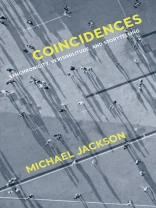Most people have a story to tell about a remarkable coincidence that in some instances changed the course of their lives. These uncanny occurrences have been variously interpreted as evidence of divine influence, fate, or the collective unconscious. Less common are explanations that explore the social situations and personal preoccupations of the individuals who place the most weight on coincidences. Drawing on a variety of coincidence stories, renowned anthropologist Michael Jackson builds a case for seeing them as allegories of separation and loss—revealing the hope of repairing sundered lives, reconnecting estranged friends, reuniting distant kin, closing the gap between people and their gods, and achieving a sense of emotional and social connectedness with others in a fragmented world.
Jadual kandungan
Preface
Time to Time
A World in a Grain of Sand
Lost and Found
Synchronicity and Suffering
The Other Portion
Correspondences
Ships That Pass in the Night
Chance Meeting
Coincidence and Theodicy
Amazing Grace
About Time
March 15, 2019
Person to Person
Confluences
Love
It So Happened That . . .
Contrived Coincidences
The Double
Chinese Boxes
Autumn Leaves
Magdalene of the Black Rose
All the Birds of the Air
Place to Place
The Relativity of Our Viewpoints
As Time Goes By
Pieces of Music
Strangers on a Train
The Lost Child
In the Nature of Things
Il Ritorno in Patria
Affective Coincidences
Coincidence and Fate
The Question of Verisimilitude
Coda
Acknowledgments
Notes
Index
Mengenai Pengarang
Michael Jackson is an anthropologist, poet, and fiction writer. He teaches at Harvard Divinity School, and his most recent books include Critique of Identity Thinking, The Paper Nautilus, and The Work of Art.












